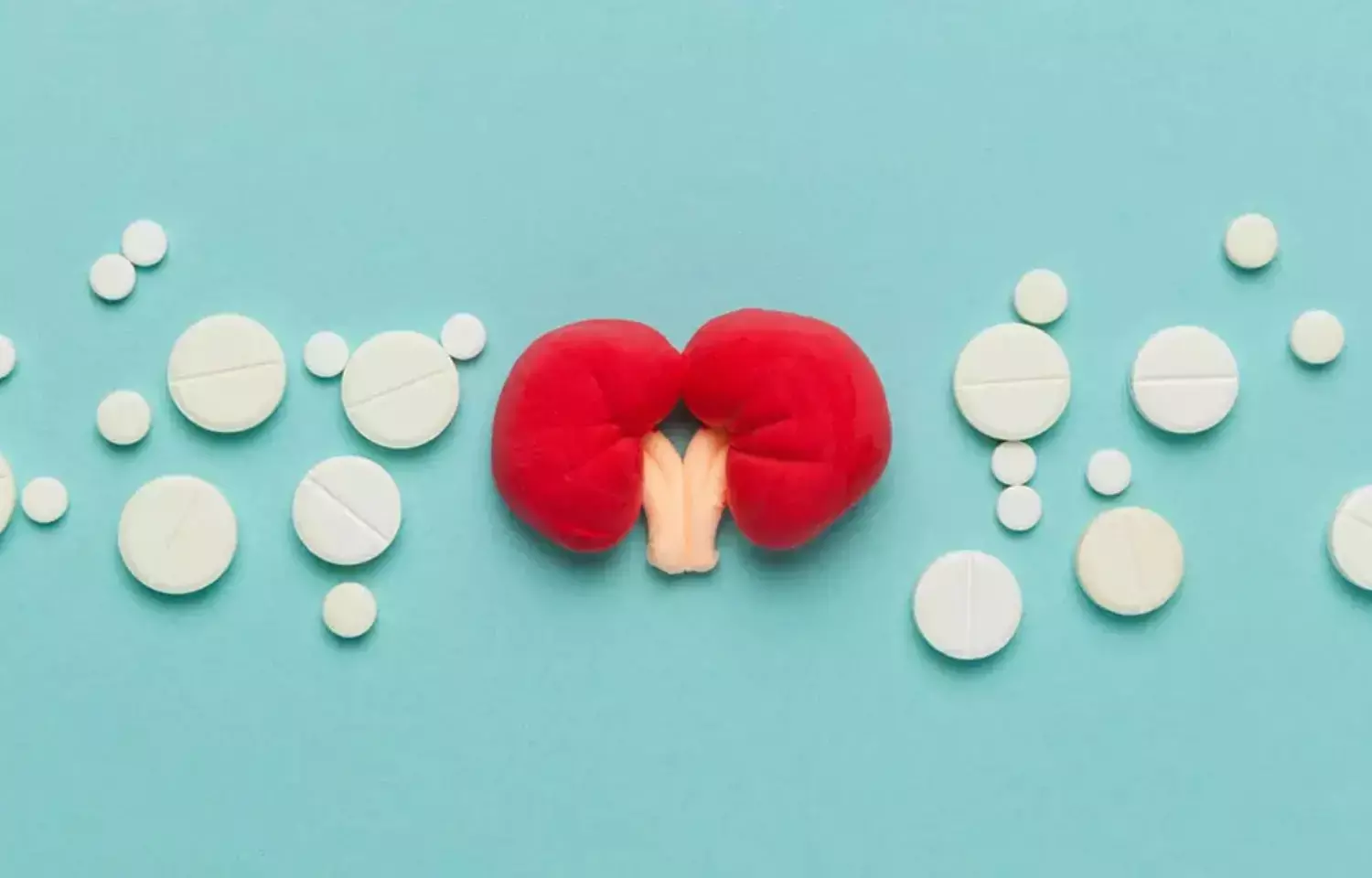- Home
- Medical news & Guidelines
- Anesthesiology
- Cardiology and CTVS
- Critical Care
- Dentistry
- Dermatology
- Diabetes and Endocrinology
- ENT
- Gastroenterology
- Medicine
- Nephrology
- Neurology
- Obstretics-Gynaecology
- Oncology
- Ophthalmology
- Orthopaedics
- Pediatrics-Neonatology
- Psychiatry
- Pulmonology
- Radiology
- Surgery
- Urology
- Laboratory Medicine
- Diet
- Nursing
- Paramedical
- Physiotherapy
- Health news
- Fact Check
- Bone Health Fact Check
- Brain Health Fact Check
- Cancer Related Fact Check
- Child Care Fact Check
- Dental and oral health fact check
- Diabetes and metabolic health fact check
- Diet and Nutrition Fact Check
- Eye and ENT Care Fact Check
- Fitness fact check
- Gut health fact check
- Heart health fact check
- Kidney health fact check
- Medical education fact check
- Men's health fact check
- Respiratory fact check
- Skin and hair care fact check
- Vaccine and Immunization fact check
- Women's health fact check
- AYUSH
- State News
- Andaman and Nicobar Islands
- Andhra Pradesh
- Arunachal Pradesh
- Assam
- Bihar
- Chandigarh
- Chattisgarh
- Dadra and Nagar Haveli
- Daman and Diu
- Delhi
- Goa
- Gujarat
- Haryana
- Himachal Pradesh
- Jammu & Kashmir
- Jharkhand
- Karnataka
- Kerala
- Ladakh
- Lakshadweep
- Madhya Pradesh
- Maharashtra
- Manipur
- Meghalaya
- Mizoram
- Nagaland
- Odisha
- Puducherry
- Punjab
- Rajasthan
- Sikkim
- Tamil Nadu
- Telangana
- Tripura
- Uttar Pradesh
- Uttrakhand
- West Bengal
- Medical Education
- Industry
Uric acid-lowering therapy fails to prevent incident CKD among patients with increased blood uric acid levels: JAMA

USA: A new study conducted by Waleed Hassan and the team showed that uric acid-lowering medication was not related to improved renal outcomes in people with normal kidney function and may be harmful in those with less significantly increased blood uric acid levels.
The findings of this study were published in the Journal of American Medical Association.
Uric acid is a waste metabolite formed by the breakdown of purines, and high blood uric acid levels are linked to an increased risk of cardiovascular disease, hypertension, mortality, and the development of chronic renal disease (CKD). Treatment of hyperuricemia in individuals with pre-existing CKD has not been demonstrated to enhance renal outcomes, but the connections of uric acid-lowering medications with the implementation of novel kidney disease in patients with eGFR within the reference range and no albuminuria remain unknown. As a result, this study was designed to look at the relationship between starting uric acid-lowering therapy and the occurrence of CKD.
From 2004 to 2019, patients with an eGFR of 60 mL/min/1.73 m2 or above and no albuminuria were treated at US Department of Veterans Affairs health care institutions. To reduce confounding, clinical trial emulation approaches such as propensity score weighting were applied. Data from 2020 to 2022 were examined. This research enrolled people who had recently begun uric acid-lowering treatment. Incidences of eGFR less than 60 mL/min/1.73 m2, new-onset albuminuria, and end-stage renal disease were the primary outcomes.
The key findings of this study were as follows:
1. In all, 269 651 patients were evaluated. 29 501 patients (10.9%) began uric acid-lowering treatment, whereas 240 150 patients (89.1%) did not.
2. After propensity score weighting, baseline parameters such as blood uric acid levels were comparable between treated and untreated individuals.
3. Uric acid-lowering treatment was related to a greater risk of both incident eGFR less than 60 mL/min/1.73 m2 and incident albuminuria in the general population, but not with the risk of end-stage renal disease.
4. The link of uric acid-lowering treatment with poorer renal outcomes was restricted to individuals with baseline blood uric acid levels of 8 mg/dL or less in subgroup analyses.
In patients with baseline blood uric acid levels of 8 mg/dL or below, uric acid-lowering medication was related to a greater risk of new-onset CKD, including both the development of eGFR less than 60 mL/min/1.73m2 and new-onset albuminuria.
Reference:
Hassan, W., Shrestha, P., Sumida, K., Thomas, F., Sweeney, P. L., Potukuchi, P. K., Rhee, C. M., & Kovesdy, C. P. (2022). Association of Uric Acid–Lowering Therapy With Incident Chronic Kidney Disease. In JAMA Network Open (Vol. 5, Issue 6, p. e2215878). American Medical Association (AMA). https://doi.org/10.1001/jamanetworkopen.2022.15878
Neuroscience Masters graduate
Jacinthlyn Sylvia, a Neuroscience Master's graduate from Chennai has worked extensively in deciphering the neurobiology of cognition and motor control in aging. She also has spread-out exposure to Neurosurgery from her Bachelor’s. She is currently involved in active Neuro-Oncology research. She is an upcoming neuroscientist with a fiery passion for writing. Her news cover at Medical Dialogues feature recent discoveries and updates from the healthcare and biomedical research fields. She can be reached at editorial@medicaldialogues.in
Dr Kamal Kant Kohli-MBBS, DTCD- a chest specialist with more than 30 years of practice and a flair for writing clinical articles, Dr Kamal Kant Kohli joined Medical Dialogues as a Chief Editor of Medical News. Besides writing articles, as an editor, he proofreads and verifies all the medical content published on Medical Dialogues including those coming from journals, studies,medical conferences,guidelines etc. Email: drkohli@medicaldialogues.in. Contact no. 011-43720751


